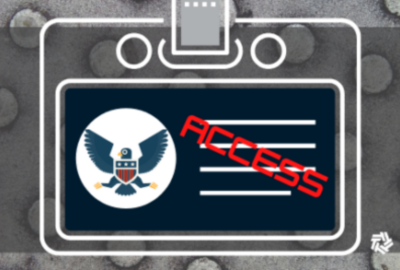Lawmakers find room for classification reforms in compromise NDAA
The must-pass defense bill includes some — but not all — of the reforms first introduced by members of the Senate earlier this year.
House and Senate lawmakers have agreed to include reforms to the classification system in the must-pass defense bill, marking an initial step in landmark efforts to overhaul how the government manages secrets.
The classification reforms included in the fiscal 2024 defense authorization bill, released by lawmakers on Wednesday ahead of an expected vote next week, include many — but not all — proposals in the “Sensible Classification Act” introduced by lawmakers earlier this year.
For instance, the bill includes a measure that would require agencies to review and process requests for classified records that are more than 25 years old, unless the head of the agency explains to Congress why the record should not be declassified. And it would require agencies to conduct training for employees to hold them “accountable” for overclassification and to promote “sensible classification.”
It would also add staff to the Public Interest Declassification Board and ensure members can continue serving on the board for up to one year after their term expires, unless a successor is appointed and sworn in.
The board is an executive branch entity that advises the president on classification and declassification policy. It has pushed in recent years for the White House to consolidate security classification guides and expand the use of technology to help manage an ever expanding torrent of classified data.
The defense bill would require agencies to come up with a plan for developing a cross-government, integrated technology solution that supports “efficient and effective systems for classification and declassification.” The proposal would be due to Congress within one year.
However, the compromise bill left out a provision included in the original classification reform proposals that would have tightened the ability to delegate the authority to classify documents.
The 2024 defense package also doesn’t include any measures from a second bill, the “Classification Reform Act,” that had been introduced by members of the Senate earlier this year. That bill aimed to set a higher bar for what information can be classified and would have put what sponsors called a “tax” on agencies who classify too much.
The conference report on the 2024 defense bill doesn’t include an explanation of why certain classification reforms were included, while others were left on the drawing board.
The legislation is moving forward as a parallel White House effort to reform a classification executive order has been delayed due to investigations into classified document handling by President Joe Biden, former President Donald Trump and former Vice President Mike Pence, Politico reported earlier this year.
Security clearance review
The defense bill does include a provision that would require agencies to study and provide a report on the necessity of the security clearances they issue, including both government personnel and contractors. That’s part of a bid to potentially reduce how many people have access to classified information. Some lawmakers have said the government grants too many people too much access to secrets after Airman 1st Class Jack Teixeira allegedly leaked hundreds of sensitive classified documents online.
It would specifically require the director of national intelligence to review the number of personnel eligible for access to sensitive compartmented information, as well as those eligible for special access programs.
Beyond classification reforms, the bill includes other measures related to security clearances and the governmentwide “Trusted Workforce 2.0” initiative.
It would require the DNI to share with Congress a report on how intelligence community could use shared technologies for personnel vetting. The intelligence community’s lead human capital team is already exploring how to better integrate human resources, suitability and security processes.
The bill would also require lead agencies to establish new “timeliness performance standards” for making personnel vetting trust determinations. Those decisions refer to whether an individual can be trusted to perform governmental jobs.
The defense bill additionally would require a “survey to assess strengths and weaknesses of Trusted Workforce 2.0.”
Launched in 2018, Trusted Workforce 2.0 is a cross-governmental performance initiative described as the “most far-reaching reform of the federal government’s personnel vetting system ever.” It aims to reduce the time required to bring new hires onboard, improve the ability of employees to move between federal positions, and improve “insight into workforce behaviors.” Much of the work is focused on streamlining and speeding up security clearance processes.
Copyright © 2025 Federal News Network. All rights reserved. This website is not intended for users located within the European Economic Area.
Follow @jdoubledayWFED






